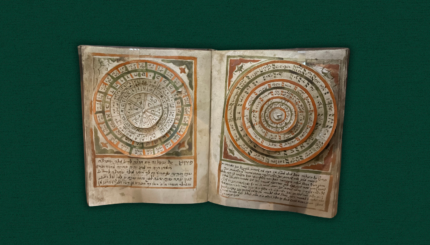A few years ago, right about the time I was becoming religious, I started getting hit with Seasonal Affective Disorder. It’s a condition with possibly the dumbest acronym in the universe (sound it out, kids), but it was very real — I’d graduated college, I was taking on all these new social restrictions (no more random hook-ups, no Friday night concerts) and I didn’t have much in the way of happiness coming in.
I asked a rabbi about it, and he said to start regularly praying Mincha, the afternoon service. Ideally, you’re supposed to pray right at sunset, which creates a separation (like one Jewish prayer says) between light and darkness, daytime and night. And that way, the sixteen-hour darkness doesn’t seem overwhelming and like it’s stealing from your day; instead, it feels like a new, unexplored territory.
From this comes the really cool site of the day: Borei Hoshech, a blog that examines the relationship between prayer and depression. At first it may seem like two arbitrary ideas thrown together — or, on the contrary, two opposites (prayer=hope! depression=sad!) — but the blog’s anonymous author takes a non-judgmental, open approach to both depression and praying, dissecting the liturgical texts piece by piece to see if s/he can find deeper truths, connections, and hope.
In a series of entries on Modeh Ani, the prayer that’s said first thing in the morning, Borei Hoshech agonizes over not wanting to get out of bed, and tries to find validation and hope from the words of the prayer:
So even though I am in the pit of a deep, dark depression, and certainly will not or cannot daven this morning, I will say these brief few words, as I struggle out of my pajamas and into work clothes and down a handful of M & M’s in an effort to propel myself out the door.
For Hanukkah, Borei Hoshech quoted a disturbingly awesome passage of Talmud:
“Our rabbis taught: When Adam saw the days becoming shorter, he said: ‘Woe is to me, because I have sinned and the world is returning to chaos!’ He prayed and fasted until the winter equinox when he noticed the days becoming longer. ‘This is the way of the world,’ he said, and he established an eight day festival.’�
The author oscillates into and out of depression, and those entries with a distance from depression give a whole different perspective, equally insightful. Both are totally worth reading.
daven
Pronounced: DAH-vun, Origin: Yiddish, to pray, following the Jewish liturgy.


